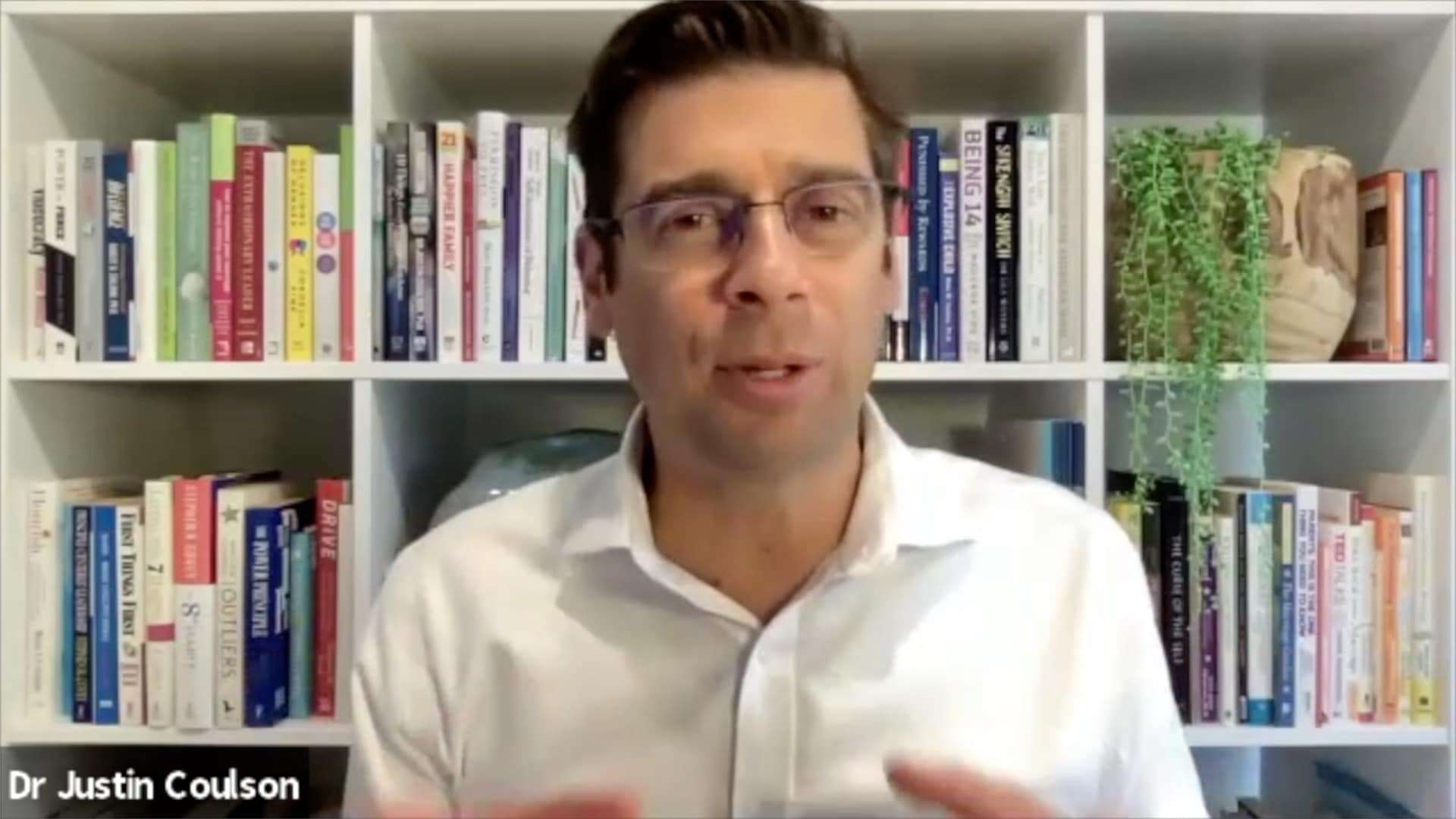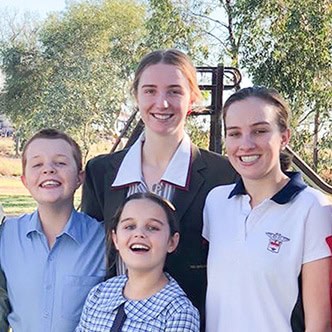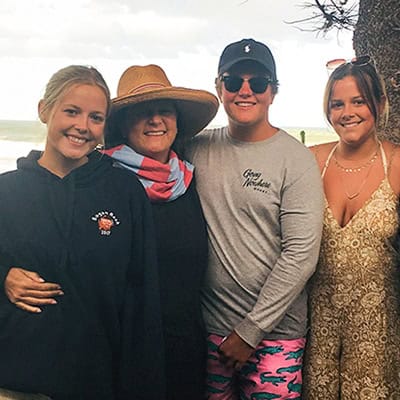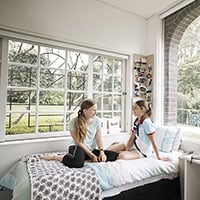
The Ultimate Packing List for Boarding School (updated)
This is the 2022 revised edition. Compiled from the real-life experiences of families who have gone before.

This is the 2022 revised edition. Compiled from the real-life experiences of families who have gone before.

I imagine that as a parent, it’s with a heavy heart that you worry for your child’s wellbeing, it’s with angst that you wonder if they feel as though they belong and it’s with curiosity that you navigate the adolescent experience by their side. More often than I would like, I speak with parents who – for too long – assumed that their child didn’t struggle with poor mental health. The reason being usually related to how their teenager looked or was perceived to be feeling – ultimately, an assumption. A risky one at that. Mental ill-health is often an invisible illness and can affect anybody – the waterboy and the captain of the first XV, the girl in student support and the Head Girl, the one who hates social media and the TikTok influencer, the quiet achiever and the school Dux. The fact of the matter is that over 60% of young people in Australia are struggling with a mental illness. That is 18 students in a class of 30, more than half of every sport team and 60% of our future leaders. Mental health can be tough to talk about. But the conversation isn’t nearly as dangerous as

Dr Justin Coulson, from Happy Families, goes through a series of questions that will help you determine whether or not a boarding school aligns with your family’s values.

Dr Justin Coulson, from Happy Families, discusses the important topic of helping your child transition to boarding school. Key points include: Watch Justin’s video, where he explains each one.

Dr Justin Coulson answers the important question “what are some healthy habits that every student should know about before they start boarding school?”. He touches on sleep, diet, exercise, friendships, and practicing their spirituality when away from home. Watch Justin’s video to learn about the importance of each one.

Connection is critical for healthy relationships with our kids. But how do you maintain a strong relationship with your child when you’re physically apart? Dr Justin Coulson discusses some communication strategies, including: Watch Justin’s video to learn more.

Dr Justin Coulson, from Happy Families, chats about the factors to consider when choosing a boarding school, in addition to friends, philosophy and fun which he mentioned in the last video. Other factors worth considering include: Watch Justin’s video to learn more.

Dr Justin Coulson, from Happy Families, discusses the all-important questions parents ask themselves when considering boarding school for their child—”is boarding school right for my child?” and “is a boarding school right for my child?”. There are many reasons you might consider boarding school for your child, including access to resources, peers, opportunities, and a certain type of educational experience. If you decide that boarding school is right for your child, there are several things to consider when deciding on a particular one. This includes co-ed or non co-ed, religious or non-religious, the overall environment, past histories with previous schools, and costs. Watch Justin’s video to learn more.

During the teen years our children’s friendships become increasingly complicated, volatile and important. Suddenly friends and friendships begin to mean everything to our teens, and when there are problems with those friendships it can feel utterly devastating. Before the age of about 12, friendships are typically and loosely based on convenience, a shared interest, or simply because the child lives nearby. Proximity is a key element in who we befriend. But after about the age of 12, our children begin to seek greater intimacy and trust in their friendships. They are developing socially, cognitively, and physically, and they are looking to share that experience with other teens who are experiencing similar things. Because of all the developmental changes occurring in their lives, teen relationships are often fluid, changing dynamically from year to year, month to month, and even day by day. That means that our children are likely to have several friendship issues as they work out their own identity, and as they mature emotionally, psychologically, physically, and socially. While this is a common situation for all teens in all high schools, the feelings, emotions, and impact can be heightened within the boarding school friends environment. Teen friendships are the

Connecting with teens can be challenging. The stereotype tells us that our sweet, loving child has turned into an argumentative, rebellious young person. More likely, however, is that your connection has shifted. Your child is more inclined to stare at a phone, hide in their bedroom, or connect with friends on social media. You miss them. These challenges can feel exacerbated when your teen is also boarding away. You call and they don’t answer. Or they do answer but their responses are mono syllabic. They’re doing “fine”. School is “fine”. Their friendships are “fine”. You feel like they’re talking past you – and all you want to do is connect. Prioritising Peers Is Developmentally Appropriate From time to time people will offer reassurance that “it’s normal for teens to pull away” from their parents. This is not entirely true. While this can happen, a more accurate way of describing adolescent relationship processes is that they begin to prioritise their peers. Sometimes this will include a sense that they are pulling away from us. More often, they want to connect – it’s just that they need to spend time with their peers. It’s not a reflection on you if your relationship

It’s normal for children to feel scared, homesick, lonely, or unsure. Here’s how to make the transition to boarding school easier. Every January boarding schools welcome new students into their doors. These students come from different backgrounds, situations and walks of life, and range from year 5 to year 12. And each year a good portion of them are experiencing their first time living away from home. While it’s normal for children to feel scared, homesick, lonely, or unsure, parents can be reassured that the schools themselves will do everything they can to help the children through that transition. They’re experts in this. They’ve been doing it for years and have effective systems in place to support students during this challenging transition. But of course, parents want to do what they can from their end as well. So, here are some tips on how to make the transition to boarding school easier for your child. How to make the transition to boarding school easier Encourage them to stay in touch with friends back home While your child is settling in, trying to learn new routines, navigate increased independence and create new social circles, it can be helpful if they stay

Our teens’ mental health can be impacted by distance from family and loved ones. Here’s what to expect if you are sending your children to boarding school. A surprisingly large number of Australian teens are struggling when it comes to mental health issues. The Young Minds Matter Survey for 2013-2014 showed that almost one in seven children and adolescents aged between 4 and 17 years experienced mental health disorders in the previous 12 months. This number is equal to about 591,000 children and adolescents across our nation. Two years later, the Youth Mental Health Report raised that number to one in four of all young people aged 15-19 years of age. And with the impact of COVID-19, we are seeing mental health services swamped as more and more people come forward with mental health issues – including young people. A Mental Health and Wellbeing report from Headspace showed high levels of distress for one in every two young people. These are alarming statistics, and show that our teens are already facing an uphill battle when it comes to their own mental health. However, some boarding students may face an even more difficult time managing stress and anxiety, as well as

Starting boarding school, or any new school for that matter, can be a bit of an upheaval for teens. But being armed with information can be reassuring and assuage some of those nerves. The trick… is getting that information. Open days are a great time to find out about a school. In most cases you and your teen will be shown around the school by a current student. They’ll be able to answer some of the questions and give insight into some of the things that your teen is worrying about. And you can get the ‘vibe’ of the school, meet some other students and parents, and ideally leave with a sense about whether or not the school will suit your teen. (The Boarding Schools Expo is also a fabulous resource where you can see a range of schooling options all under the one roof!) As helpful as open days are, it also might be worth visiting the school on a ‘normal’ school day, as well. Open days are showcases for potential families, and they’re a great way to see all the options and opportunities a school might have. But they don’t necessarily give a fully accurate picture of what

Your teen is getting ready to venture out into the boarding school world. Encouraging independence in your teen will help them be prepared for their new responsibilities. Here’s how to do just that. Research shows that independence, or agency, is one of the most important contributors to success and happiness. It is a predictor for almost all the positive outcomes that we want for our kids – better wellbeing, lower stress, better health, increased longevity, greater career success and even lower use of drugs and alcohol. At boarding school, your teen gets the chance to explore their independence. They’ll be responsible for organising themselves and their belongings, keeping their room clean, getting to class and extracurricular activities on time and just generally keeping their lives together. And while this is a great opportunity for them, it can also be overwhelming. Of course, they’ll have support, but not in the same way they’ll have at home. So, now is a great time to get them ready for this increased independence. Here’s how. Hand over decision-making power (within limits!) Getting our teens ready for making good decisions by letting them make decisions seems counter-intuitive. But the best thing we can do for our

If you’re wondering how to talk to your daughter about body image, you’re not alone. It’s a conversation that has no beginning or end, but continues throughout your daughter’s life.

My name is Chelsea White and I am a Year 12 boarder at Kinross Wolaroi School (KWS) from Narromine. I started as a boarder in New House in Year 9.

We spoke to some PLC Armidale students about how boarding has helped them build resilience and get through some very tough times.

2020 marked the beginning of a new decade but with this exciting milestone came new and old challenges for regional communities.

To say 2020 has been a year of challenge and change would be an understatement. However, St Stanislaus’ College in Bathurst has put a range of measures in place to manage the challenges of Covid19. During this unprecedented time, the Stannies community has supported each other and simply done their best to adapt to the changes. 2020: a year of challenge and change Year 12 students at Stannies are getting on with their studies to the best of their abilities, with the 2020 HSC set to go ahead. One such student is Oscar Ward from Orange who, despite normally staying on campus as a boarder, has started to commute from home to continue his HSC work. “I’m completing a number of industrial technology subjects and as there’s only a small number of us, we’re able to continue our major works while maintaining social distancing. “Things are changing all the time, but you just have to keep going.” Emphasis on critical thinking Director of Curriculum, Mrs Virginia van Gend says teachers have moved to online lessons for less practical-based subjects to ensure students continue to apply themselves to study. “Although things have changed, we’re continuing ‘face-to-face’ learning online so students and

Transition, change and uncertainty – this is the world we live in and judging by the recent drought, bush fires, and the Covid-19 crisis, there are no signs that we will be changing direction any time soon. Successfully navigating life in the 21st century requires a willingness to embrace change and adapt to new situations. To do this boys need the confidence, emotional intelligence, knowledge and skills to be able to handle the ever-changing landscape. Change is the only constant in life. One’s ability to adapt to those changes will determine your success in life. Benjamin Franklin Develop security and trust Experiential education, a key pillar of Scots College’s strategic intent, lends itself well to teaching adaptability to boys as it builds confidence and experience in real-world settings. Within the Scots Boarding community, and in particular at their Year 9 residential campus, Glengarry, they try to teach boys to be adaptable. Through a consistent and intentional approach, it is important to offer boys challenging, confidence-building experiences in a managed and mentored environment – that builds trust in stages. It is vital to pitch learning experiences at whatever stage the boys are at otherwise you risk shaking their confidence without building

As our kids made the trek back to their boarding houses for the start of the new school year late last month, we knew many of them had home firmly on their minds.

More fabulous boarder stories shared with us throughout 2019, highlighting the unique experiences and opportunities boarding school offers. Here are links to those stories that ran between June and October. Enjoy! Isaac Barrett: prepared for the opportunities JUNE: Year 8 boarder at St. Stanislaus’ College, Isaac Barrett of Coonamble loves everything about boarding and the opportunities it presents. It’s said he bleeds the Stannies blue and white. Isaac talks about his experience of boarding at the school. Read more Cooper Evans & Rosie McNair: boarding memories to cherish Boarding captains at Barker College, Cooper Evans and Rosie McNair are part of a tight-knit, coeducational boarding community. Both are in their third year of boarding, building memories that will take them beyond school. With boarders from across Sydney and regions NSW, Cooper comes from Taree and Rosie is from Dubbo. Barker has a long history of supporting boarders from rural and regional areas. Read more Georgia Kirkby: maintaining outside interests all part of the boarding experience Bellata’s Georgia Kirkby, a passionate poultry and duck breeder, started as a boarder at Kincoppal-Rose Bay School(KRB) in Year 7 following her primary years in Narrabri. Her small hometown has little in common with Rose Bay, a harbourside

Over the past year, we’ve been putting the spotlight on the lived experience of boarding in the words of boarders, themselves. Themes of community, resilience, and independence come through these stories regardless of what school they’re from. Here is a compilation of our 2019 boarder stories. Georgia Porteous: message to my younger boarder self JANUARY: Georgia Porteous graduated from Kinross Wolaroi School in 2018. A boarder from Dubbo since Year 7, she was excited about boarding school for several years prior to starting. So much so, some were worried boarding may not live up to her high expectations. She looks back over the past six years of her boarding life to offer some advice to those who may be just starting out as a boarder. Read more Damon O’Sullivan: a once in a life-time experience FEBRUARY: Apprehensive at first about the idea of boarding school, 15-year-old Damon O’Sullivan from Dubbo has come to see the experience as one to cherish. Starting at St. Ignatius’ College Riverview in 2018 was a big change from what Damon was used to at home, but it was a school tour prior to starting that gave him insight into what life might be like there. Watch the video

Boarding is a world away from the realities of the farm Year 11 boarder, Andrew Newton, has been at Shore since Year 7. Home is a seven hour drive away at Gurley, near Moree. Sixty-five per cent of Shore’s 200 boarders come from regional Australia. The Newton family’s century-old cropping property has faced a second winter without being able to plant winter crops, but it hasn’t deterred Andrew from one day returning home to the farm. In the meantime, he’s taking every opportunity on offer at Shore. Boarding life at Shore Why did you come to Shore? My parents wanted me to go to a boarding school. I’m pretty close to my grandfather who told me all the stories about how good boarding school was for him, then when I got here it was pretty scary at the start but now it’s really good fun. What do you like best about being a boarder? Friendships. I really look forward to coming back to school after the holidays to see all my mates. After Prep, we all enjoy relaxing in front of the TV and playing pool and just talking. What do you do on the weekend? Lots of sport, playing on

Confidence to dream Where to send your child to school is a big decision for any parent. Never more so than if you’re considering boarding-based education for them. Boys like Cranbrook School’s Head Prefect Tully O’Regan from Scone, started life as a boarder in Year 9, and credits his confidence to the connections made over the years at the school. Fellow Year 12 boarding student Lachie Bible, from Trangie, also enthusiastically attests to the value of a Cranbrook education. He believes his scholarship to study at the school is paving the way for him to pursue truly transformative educational opportunities. Family structure I wouldn’t be who I am if I hadn’t come to Cranbrook to board. The experience helps you mature at a rate that will help you in greater life.” – Tully O’Regan As Tully explains, boarding is like living with your best mates while being a big brother figure for the younger year groups. “You don’t lose that sense of family structure you’d have if you were living at home, you still have that relationship with parent figures and school routine and boys who are like siblings.” One of the key components to the boarding house is the

Boarding offers many pathways Keen to go away to boarding school from Year 7, Year 11 student at Yanco Agricultural High School, Dimity Evans has thrown herself into the activities on offer over the past five years – everything from musical performance to showing cattle. While missing family and friends from home, she sees the pathways that come from a boarding experience as worthwhile. Situated on 280 hectares, including 180 hectares of intensive irrigation and dry land agriculture and 60 hectares of natural bushland bordered by the Murrumbidgee River, Yanco was established 97 years ago, to provide a fully academic and practical public education with an emphasis on agriculture for any student within NSW. Today, it’s a comprehensive, co-educational experience. Dimity shares her thoughts on boarding. Pursuing interests Most interests I would like to pursue are available at Yanco. What interests have you been able to pursue at school: Since coming to Yanco Ag High School I have been able to participate in the Cattle Showstock Team, which I have been a part of since Year 7. I have participated in the school Drum Corps since Year 8 (Junior Drum Corps Year 8-9, Senior Drum Corps Year 10 onwards), been

Sibling support when living away from home Brother and sister, Will and Emma Benham are both boarders at The Armidale School (TAS), where they’re enjoying a range of opportunities at the same time as carving out their own interests and identities. Will and Emma, along with mum, Pip, share what it means to be able to enjoy the boarding experience knowing there’s someone to lean on close at hand. Speak with the staff at TAS at the Tamworth Boarding Schools Expo on 26 and 27 July. They’ll be there along with 30 other schools from Sydney, regional NSW and Queensland. The event is free, you’re welcome to come back as many times as you like while our doors are open, and you can find all the details about who, what and where on this website.

Maintaining outside interests all part of the boarding experience Bellata’s Georgia Kirkby, a passionate poultry and duck breeder, started as a boarder at Kincoppal-Rose Bay School (KRB) in Year 7 following her primary years in Narrabri. Her small hometown has little in common with Rose Bay, a harbourside suburb seven kilometres east of Sydney’s CBD, but Georgia feels at home at a school with a long boarding tradition. It’s a friendly and really open community. It’s about community KRB’s strong contingent of boarders, especially those from rural New South Wales, helped Georgia settle. “It’s good knowing you’re not the only one who’s moved from a small town or rural area to the city. If you have questions, you can go to the other girls because they’re all going through the same thing. “The boarders have all moved from different areas to come to KRB. They don’t see their parents or siblings every day, so you can talk to them about what you’re going through.” It is the friendships and closeness of the boarding community at KRB that Georgia most treasures. “I like the friendships you end up having. You change rooms every term, so you get to spend time with

Boarding memories to cherish Boarding captains at Barker College, Cooper Evans and Rosie McNair are part of a tight-knit, coeducational boarding community. Both are in their third year of boarding, building memories that will take them beyond school. With boarders from across Sydney and regions NSW, Cooper comes from Taree and Rosie is from Dubbo. Barker has a long history of supporting boarders from rural and regional areas. Cooper and Rosie share their boarding experience. Cooper Evans What has been your most memorable experience as a boarder? My most memorable experience as a boarder would have to be when I first started boarding and coming into a new school that was far bigger than my old school and home, three hours away. Since my first day, I’ve always felt welcome in the boarding community. Everyone gets along with each other so well. What do the friendships you’ve made mean to you? I’ve made many great friendships since I started at Barker, both in boarding and outside of boarding. The friendships mean a lot. As you start living with everyone, they become like family. These connections will last after I finish school. What have you learnt most whilst boarding? I think the

Unprecedented advantages to boarding experience Canberra Grammar School (CGS) has a rich heritage and culture developed through boarding, woven into the fabric of the school. Boarders, Guy Campbell and Oliva Nolan share their story of what the boarding experience has been like for them. Boarders have an unprecedented advantage of understanding the depth and diversity of different world cultures because of the make-up of the boarding school. – Guy Campbell Guy Campbell, Year 11 Guy Campbell has spent the past four years as a boarder at CGS, seeing the culturally-diverse boarding environment as something unique, setting boarders apart from other students. “Boarders have an unprecedented advantage of understanding the depth and diversity of different world cultures because of the make-up of the boarding school. “I’ve also appreciated how central boarding is to all of the school activities…of being able to go to training in the afternoon alongside friends, and being able to have breakfast, lunch and dinner alongside people who I’ve developed strong friendships with.” Being away from family encourages boarding students to assign more reliance and trust in other boarders, resulting in a boarding community where all students can feel comfortable and express themselves. However, arguably the most integral

Fast-tracking tolerance & independence Like it is for any young person starting a new school a long way from home, the year has been a mix of excitement and homesickness for Torie Burton, a Year 7 boarder at Pymble Ladies’ College in Sydney. Staying active seems to have been the key to both enjoying the experience and getting through the rough patches. Pymble boarders are kept busy with the College’s ‘Love it’ program, including activities such as harbour walks, shopping at local markets and trips to rugby and AFL games. In the evening study program, ‘Learn it’, boarders have access to teaching staff and academic tutors to help with homework, easing the boarders into their new learning environment. When Torie isn’t boarding, she’s roaming the wide open plains 50 kilometres north-west of Coonamble, on her family’s mixed farming property. We caught up with her at home over the Easter break to find out how the experience has been for her so far. A new life at boarding school What interests have you been able to pursue at school? My interests are music and sport – netball, basketball and athletics (sprinting). I really love sprinting due to the fact I’m coached

A support network of boarding sisters Fourteen year old Asha from Newcastle, was worried about homesickness until she arrived at the Ravenswood Residential College (RRC) to discover a strong support network for boarders, not only in the College but across the day school as well. “I was expecting living away from my parents to be really hard, but now I know that this is the best place for me, and that everyone is here for you 100%.” The Year 9 student lists the RRC tutors and co-curricular activities as some of the greatest benefits of living on campus. She offers some advice for other young people considering boarding. “Give it your all because if you do things half-heartedly, you’re not going to get the best out of it … and pack plenty of clothes!” Asha spoke with Boarding Schools Expo about her boarding experiences.

An outgoing student and leader, Riley Bomford has every intention of utilising his boarding school experiences to build a career in law.

Boarding Schools Expo marketing communications specialist, Kim V. Goldsmith is mum to a school leaver. She gives a somewhat light-hearted take on the serious topic of what it takes to get your soon-to-be ex-boarding, school leaver ready to enter the ‘real’ world. You endure 13 years of school, along with the endless paperwork and appointments that go with educating your child, and then it’s all over…or not. Your school leaver is focussed on nothing but end-of-school celebrations and where they’ll spend the summer before gap year plans or uni starts in the New Year, while you realise they aren’t set up yet to get a job, go to uni, or apply for youth or living away from home allowances. Somewhere along the line, you slipped up on the paperwork! Even our accountant groaned when I mentioned the list to him. So if like me, you neglected to wean your child off your family Medicare card when they turned 15, you’ll probably think that’s going to be hardest part about cutting the metaphoric apron strings – the filling in of forms, queuing at Centrelink, setting up myGov online accounts with their endless amounts of identity verification and security questions. Oh, but then

BY RYAN TAYLOR, FINANCIAL LITERACY FOR YOUNG AUSTRALIANS* The comfort of school will soon be coming to an end for this year’s graduates, with major works and exams around the corner. While school may not seem like the most comforting place during stressful times such as exam week or the night before (or morning of) an assessment, students also need to be prepared for what happens after all the stress of those exams and assessments end. For some university will be the right choice, while for others, joining the work force is on the cards. Others may do both, taking up an apprenticeship while studying a trade at TAFE. The simple fact is school-leavers won’t be spoon-fed. They’ll be deciding for themselves and will need to be self-motivated in the process. Motivation & discipline In many ways school doesn’t adequately teach students about what’s needed for life after school. Life after school is a great chance to follow interests and pursue passions, yet a lack of skills, motivation, discipline, and responsibility for one’s own actions can affect chances of future success. For university students, not being guided through the whole assignment with a rubric, marking criteria and unlimited teacher access and constant

Living 50km north of Moree, Jodie and Andrew Crowe had discussed the idea of boarding school before the first of their six children arrived. It was something they felt was right for them but would take some adjustment as each child left home. As for choosing what schools would best suit their children, it was a personal decision based on the positive impression past Ascham students had made on them and the school’s relationship to families in the area. As Jodie explained to Boarding Schools Expo’s Kim V. Goldsmith when you have six children and a business to run, there’s not a lot of time for shopping around and the confusion that goes with it. The decision to send the boys to The Scots College was based not only on the educational offering but its proximity to Ascham, a serious logistics issue when you’re managing the activities of a large family. How do you mentally prepare yourself to send your children away to school…particularly that first one? Well, we talked about it a lot and so the children knew from quite a young age that’s where they would go. It was very sad but it was something we knew was for the

Prudence Brosnan is one of the Boarding House captains who co-leads the St Margaret’s sisterhood living on campus. She hopes to inspire, motivate and encourage her fellow ‘sisters’ to take full advantage of their St Margaret’s boarding experience and all of the opportunities available. From Thallon in South West Queensland, Prudence had to adjust to a completely different lifestyle when she arrived at St Margaret’s five years ago. Living 80km outside of town, it was an hour car trip to and from her previous school each day, a stark contrast to what she was about to experience living on campus as a boarder. Being the only girl at home with two brothers, she also discovered living with girls was very different; in fact, she quickly came to acquire 170 new sisters in her boarding house family. Prudence gave us an insight into her St Margaret’s boarding journey. What opportunities have you had as a boarder that you cherish or value the most? Living with 170 other girls is truly an experience that I will cherish forever. The sisterhood we have shared in the St Margaret’s boarding house is something I will never forget. Plus, I have been fortunate enough to

Year 8 student at Pymble Ladies College, Eloise Wilson of Narromine is a most composed and eloquent young woman. She sat down with Boarding Schools Expo’s Kim V. Goldsmith recently to share her experience of being a boarder. What has boarding been like for you? I was definitely a bit homesick at the start. But with all the staff support and being surrounded by the girls there, you feel like you’ve got a hundred other sisters…it was really nice and welcoming. I was also fortunate to have a really nice sister there too and she looked out for me a lot. How do you cope with homesickness? I found I got more homesick when I rang Mum and home. So, doing things to get your mind off it – a sport, playing with friends, going outside or something like that – help you not to think about it too much. What sort of things do you get to do at boarding school that you wouldn’t be able to at home? There are so many activities. Growing up in Narromine I enjoyed a lot of sporting opportunities, but at Pymble I’ve been able to try new activities like rowing, yoga and fitness

BY RYAN TAYLOR, FINANCIAL LITERACY FOR YOUNG AUSTRALIANS* Children learn so much from parents. Unfortunately, managing money is a topic you will also need to teach your children about. However, it can be very easy to put them on the right track early on. Some of the best ways to teach your children about money include: 1. Pay an allowance for chores completed This is great for two reasons as it instills an understanding that work needs to be done to maintain a habitable household. Additionally, giving ‘pocket money’ to your children links money to being earned through work, allowing them to understand it takes time and effort to earn and causing them to think critically about the time taken to do chores before spending the pocket money made. 2. Create a bank account This one seems obvious, however, it can be a minefield trying to find an account suitable for children. Most banks do offer accounts for students or children, however, make sure you look beyond your current default bank for the best deal. The most important thing is to find one with very little, or preferably no fees, as this can quickly eat away at the small amount

Technology has infiltrated our daily lives in such ways, many of us are almost unaware of it…until it starts to interfere with what we’re doing. The use and abuse of technology in schools across the globe has taken the headlines at times, as society works through how best to use mobile devices and the information and opportunities they give us access to. In this final post of our series on contemporary boarding, it’s suggested that while there are challenges in managing technology, there are also many positives to be had from embracing it. Director of Boarding at Barker College, Jon Rheinberger believes managing technology and the use of devices is a serious challenge. “Students are largely unable to self-regulate their device use and this creates real challenges in managing boarding. “The balance between educating on healthy use and imposing rules is difficult to achieve. “In addition to this, the world in which they participate, which is hidden from view, can be a treacherous place and a great deal of vigilance is required which can be difficult to sustain.” Abbotsleigh’s Rochelle Wiley agrees it’s a whole school challenge as well as a boarding challenge. On the flip side, while challenges are

Amanda Ferrari hails from Trangie, on the Central Western Plains of NSW. She’s still starry-eyed over the fact that she managed to snag a farmer, and has been married to Ross for 22 years. They have three children, twins Amy and Annabel, who are completing their university studies in Sydney. Both girls attended Abbotsleigh, and their youngest son, Oliver (Year 10) is at The Kings School. With a healthy sense of humour, no doubt sorely tested by the trials and tribulations of parenthood, Amanda shares her experience of finding the right boarding school for her three children. Well, this is a new social outing for me…via the keyboard. I’m a former ESP (Eastern Suburbs Princess) tempted to the great plains of NSW by fabulous parties and a depth of humanity not known in the bowels of big cities. I married my farmer and together we have increased the population of our little western town by three. These are glorious days and we enjoy a way of life so foreign to those in more populous areas that I find myself continually feeling sorry for residents east of the Great Divide…unless of course, said residence is a beachfront shack, then my heart

Continuing from our last blog post on the changing face of contemporary boarding, now we look specifically at the needs of boarders, and the expectations of their parents. In her research into the Australian boarding industry, Ascham School’s Head of Boarding Sue Newton has noted the needs of adolescents and their parents, along with parental expectations, are more complex now than ever before. As well, there have been changes in the traditional boarding market, with changes within the historical catchment of rural and remote families, and schools have had to increasingly diversify into other markets, such as more urban professional parents and international students. “There’s been a shift to more home-like environments (at schools) and warmer interactions between boarders and staff are more common, as well as greater parent engagement and increased professionalism,” explains Ms Newton. Reflecting that level of professionalism with the individual at the centre, is the integrated approach of care outlined by Barker College’s Director of Boarding, Jon Rheinberger. “We have a network of support that includes academic staff, counsellors, health staff, boarding duty staff, tutors, coaches and other support staff. “Good communication between them enables everyone to do their job well in supporting the individual.” Meeting

The days of ice-cold showers in open area bathrooms, unidentifiable food, military-style dormitories with regulation bedspreads (hospital corners, please) and white sheets stiff as boards with starch, are long gone in Australian boarding schools. Along with banishing the austere living conditions of decades past, went the idea that boarding was just a place to live while you learned. Contemporary boarding aspires to be a home away from home for many children from rural and remote parts of the country, with many schools looking for ways to make it even more than that – an extension of home, the boarding community being family. Ascham School’s Head of Boarding, Sue Newton says while boarding has a long, proud history of providing education for rural and remote communities, there are challenges facing the sector against a backdrop of rapid change within the wider education sector and society itself. “Boarding, particularly in the independent schools market, is highly competitive and parents have a vast array of educational options available. “There are several current and emerging issues, I believe, that are affecting the shape of boarding in Australia…and why I believe boarding is well positioned to excel in the future.” Ms Newton notes the following

Exam stress is something most of us have suffered at some point in our lives, whether we remember our own experiences or are living through those of our children. As Term 1 winds down for a much-needed break after the whirlwind start to the year, it’s timely to think about how to start the new term on the right foot – a term when many of children have half-yearly exams or some big assessments on the table. “…today’s teens are one of the most vulnerable generations…” Australian psychologist, Dr Michael Carr-Gregg suggests today’s teens are one of the most vulnerable generations, facing challenges their parents and grandparents didn’t have. Exams are additional pressure. In an editorial in the South China Morning Post, Dr Carr-Gregg says adolescents’ needs and behaviours can sometimes seem indecipherable, yet as parents, we need to be world experts in our own kids – including knowing when to back off and let them face challenges on their own, or when to set boundaries. So, how do you go about recognising if your child is suffering from stress? Online counselling service for young people, Kids Helpline identifies the following signs: Feeling confused Losing touch with friends Feeling moody

One of the mums on our Boarding Schools Expo team is having trouble communicating with her teenage son. She’s fallen into the trap of lecturing and, while she knows he wants to hear less of her voice, that’s not how she’s wired. When their son returned home from school camp recently, she took her husband’s advice. All she asked was “How are you doing?” – a sharp contrast to the usual 20 questions routine. But it worked! When he felt like it, he eventually opened up. Car trips are often great for getting a teenager to talk – because there’s nowhere else for them to go. Our post to Facebook on Friday has another great strategy. It quoted Jim Higley, award-winning US author, who promotes the 30-second conversation strategy. When he feels the need to lecture, he starts out with: “I need 30 seconds to share something with you that’s been on my mind. Is your head in a good place to listen?” Once he’s said his piece (in 30 seconds or less), he asks the teen to come back later in the day with their thoughts. Australian parenting expert, Michael Grose also sympathises with parents who feel frustrated by
Vote for
your favourite school
at an expo for a chance
to WIN $1,000!
From panel experts, to scholarship opportunities, to prizes
The School of the EXPO Award celebrates genuine connection between families and schools. Voted on by families attending each event, the award recognises schools that stand out for their friendliness, presentation, and knowledge of boarding life. It’s a fun, interactive way for families – and their children – to engage with the schools in the room, while giving exhibitors valuable feedback on what resonates most. Each winning school receives a free registration for the following year’s Expo in recognition of their excellence.

Be part of the community
Connect with fellow boarding school families, and share in a collective of wisdom, support and love.
Don't have an account? Sign up